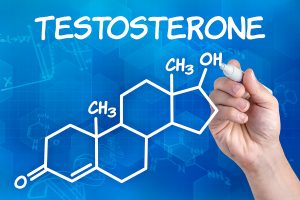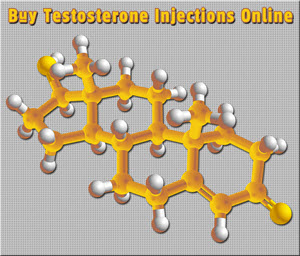Video Link: https://vimeo.com/291313215
Video Download: Click Here To Download Video
Video Stream: Click Here To Stream Video
Bio-Identical Testosterone
There is no doubt that Bio-Identical Testosterone has become increasingly popular over the course of the last generation. There are millions upon millions of aging males that have turned to Low-T Therapy from reputable Hormone  Clinics in order to treat Andropause, also known as Age-Related Testosterone Deficiency.
Clinics in order to treat Andropause, also known as Age-Related Testosterone Deficiency.
Testosterone Creams, Patches, and Injections have shown to be highly capable of boosting Testosterone Levels back to normal (And restoring sex drive and energy) for men suffering from Hypogonadism, but there has always been the question of drawbacks. What is the potential downside of Testosterone?
Historically, the lack of longitudinal studies has impaired our knowledge regarding what the risks of Testosterone Therapy truly are, but a growing number of studies released over the course of the last few years have quickly changed what we know about Testosterone.
Studies nearer to the turn of the century seemed to suggest that there may be a correlation between cardiovascular disease and Testosterone Therapy, and this necessitated further study to truly recognize the safety concerns related to Low-T Treatment with Therapeutic Testosterone.
Testosterone Therapy Safer Than Once Believed
Fortunately for men with Testosterone Deficiency interested in Hormone Therapy, these studies have not been corroborated, and issues with the research methods inflated cardiovascular risks associated with Testosterone. There are multiple factors that contribute to this misunderstanding about Testosterone.
For example, in some of these studies, patients were given way more Testosterone than they actually needed. Appropriate Low-T Therapy Dosing boosts Testosterone to normalized levels, whereas many patients were receiving Testosterone far above that which is normally produced by a normal and healthy male.
When men have too much testosterone in their systems, this truly can lead to cardiovascular complications, but new research suggests that Restorative Testosterone Therapy prescribed appropriately by a Hormone Specialist can improve cardiovascular outcomes for patients, the opposite of what earlier researchers concluded.
improve cardiovascular outcomes for patients, the opposite of what earlier researchers concluded.
Another issue that led to Testosterone Misconceptions was that the patients that were examined were not appropriately screened for other health issues which affected their cardiovascular and mortality risk.
Patient data analyzed did not take into account the negative influence of these co-morbid disorders on the health of the patient, making it appear that the risks of Testosterone Therapy were greater than they were in reality.
Latest Testosterone Therapy Research Findings
One of the most recent major studies regarding Testosterone Safety was released by the American Heart Association in 2015. In this study, researchers followed more than 1400 men ranging in age from 52 to 63 that had healthy hearts in combination with Low-T.
What they discovered was that Testosterone Replacement for Low-T had no negative impact upon risk for death, stroke, or heart attack.
Another study released in the same year by the Mayo Clinic examined the medical history of thirty thousand patients taking Testosterone, with regard to the risk for blood clots.
They found no evidence that Testosterone Replacement Therapy increased the risk of developing these blood clots.
Testosterone Restoration was also linked to Prostate Cancer in early 21st century studies. This was partially because Testosterone Therapy is associated with increased BPH Levels in the bloodstream, which was once correlated with Prostate Cancer risk. New research has shown that while Bio-Identical Testosterone does indeed elevate BPH Levels, this does not have an impact on Prostate Cancer risk. Furthermore, a five-year longitudinal study released in 2015 shows that Recombinant Testosterone Therapy does not lead to an increased incidence of Prostate Cancer.
Should You Try Testosterone Therapy?
It is true that more research needs to be conducted in order to more fully assess the benefits and drawbacks of Testosterone Therapy for men over the age of thirty with Testosterone Deficiency, but that does not mean that you should avoid Testosterone Injections or other forms of treatment because of these unknowns.
Men can benefit greatly with regard to energy, sexual health, psychological well-being, and fitness with the help of Testosterone Therapy, and you shouldn't be afraid to talk over the prospects of treatment with your doctor.
Though Testosterone can benefit patients with Symptomatic Low-T greatly, there is not yet sufficient evidence to encourage patients with no Low-T Symptoms to use Testosterone Deficiency as a protective measure, however.
Perhaps one day, when we know more about how Testosterone Therapy, Low-T Treatment can be used as a protective measure, and patients can start receiving appropriate treatment before symptoms appear.
If you are interested in Testosterone Replacement, or any other form of  Hormone Replacement Therapy, such as Human Growth Hormone Therapy or Sermorelin Injection Therapy, we encourage you to reach out to a knowledgeable source, such as the Conscious Evolution Institute.
Hormone Replacement Therapy, such as Human Growth Hormone Therapy or Sermorelin Injection Therapy, we encourage you to reach out to a knowledgeable source, such as the Conscious Evolution Institute.
Contact us at the number above to learn more!
Contact Us Today For A Free Consultation

- Testosterone for Women [Last Updated On: December 1st, 2023] [Originally Added On: December 29th, 2013]
- Testosterone Androgen [Last Updated On: December 11th, 2023] [Originally Added On: December 29th, 2013]
- Testosterone and Body Building [Last Updated On: December 14th, 2023] [Originally Added On: December 30th, 2013]
- Testosterone Levels [Last Updated On: December 6th, 2023] [Originally Added On: December 31st, 2013]
- Testosterone Gel, Cream, and the Testosterone Patch [Last Updated On: November 28th, 2023] [Originally Added On: December 31st, 2013]
- Buy Testosterone | Types of Testosterone Replacement Therapy Programs, Injections, Cream and Gel [Last Updated On: December 13th, 2023] [Originally Added On: December 31st, 2013]
- Buy Testosterone Injections Online, Testosterone Prescription for Low T, Testosterone Replacement Therapy [Last Updated On: October 16th, 2020] [Originally Added On: January 1st, 2014]
- Aging and Testosterone Replacement Therapy [Last Updated On: December 12th, 2023] [Originally Added On: January 3rd, 2014]
- What Causes Low Testosterone [Last Updated On: December 10th, 2023] [Originally Added On: January 7th, 2014]
- Hormone Levels in Men [Last Updated On: December 4th, 2023] [Originally Added On: January 12th, 2014]
- Hormone Level Testing [Last Updated On: November 29th, 2023] [Originally Added On: January 13th, 2014]
- Types of Testosterone Products and Delivery [Last Updated On: December 8th, 2023] [Originally Added On: January 22nd, 2014]
- Testosterone Therapy Helps Men with Low-T Ward Off Prostate Cancer [Last Updated On: May 29th, 2024] [Originally Added On: December 29th, 2019]
- The Importance of Dietary Fat for Testosterone Production [Last Updated On: July 8th, 2024] [Originally Added On: January 2nd, 2020]
- Testosterone Deficiency and Low-T at Epidemic Levels Among Men in the United States [Last Updated On: May 27th, 2024] [Originally Added On: May 17th, 2020]
- The Effects of Testosterone Therapy on Male Patients -- Who Should Use Testosterone? [Last Updated On: December 20th, 2023] [Originally Added On: June 16th, 2020]
- Does Ibuprofen Contribute to Low Testosterone? [Last Updated On: January 27th, 2024] [Originally Added On: June 20th, 2020]
- The Link Between Testosterone and Lower Rates of Autoimmune Diseases Among Men [Last Updated On: January 30th, 2024] [Originally Added On: June 21st, 2020]
- Weight Cycling and the Problem with Crash Dieting [Last Updated On: April 8th, 2024] [Originally Added On: July 30th, 2020]
- Understanding how Muscle and Fat Impact Body Mass, Weight, and Health [Last Updated On: April 15th, 2024] [Originally Added On: August 25th, 2020]
- The Role of Nitric Oxide in Cancer Proliferation And Prevention [Last Updated On: May 3rd, 2024] [Originally Added On: August 26th, 2020]
- Understanding Heartburn in the 21st Century [Last Updated On: April 24th, 2024] [Originally Added On: August 28th, 2020]
- What is Erectile Dysfunction? [Last Updated On: April 20th, 2024] [Originally Added On: August 30th, 2020]
- Sermorelin Acetate Drug Information [Last Updated On: April 7th, 2024] [Originally Added On: August 31st, 2020]
- Exercise and Mental Health [Last Updated On: April 5th, 2024] [Originally Added On: September 1st, 2020]
- The Importance of Proteins, Carbs, and Fats [Last Updated On: March 11th, 2024] [Originally Added On: September 2nd, 2020]
- Low-T Treatment Before and After -- How Testosterone Therapy Improves Vitality [Last Updated On: April 9th, 2024] [Originally Added On: September 6th, 2020]
- Changes to LabCorp Guidelines for Low-T Diagnosis and How They Impact Your Treatment [Last Updated On: July 14th, 2024] [Originally Added On: September 22nd, 2020]
- The Effects of Testosterone on Asthma Prevalence Among Men and Women [Last Updated On: February 19th, 2024] [Originally Added On: October 6th, 2020]
- 7 Exercises to Elevate Testosterone Levels [Last Updated On: June 13th, 2024] [Originally Added On: October 10th, 2020]
- Vitamin A is Essential for Good Health - Are You Getting Enough ? [Last Updated On: April 16th, 2024] [Originally Added On: October 14th, 2020]
- Testosterone and Diet – How to Support Testosterone Levels with Healthy Eating [Last Updated On: June 7th, 2024] [Originally Added On: October 29th, 2020]
- The Significance of Telomeres in Stem Cell Treatments [Last Updated On: March 16th, 2024] [Originally Added On: November 27th, 2020]
- The Influence of Testosterone on Protective Mating Behaviors in Men [Last Updated On: January 25th, 2024] [Originally Added On: December 6th, 2020]
- The Role of Testosterone in Women's Health [Last Updated On: December 24th, 2023] [Originally Added On: December 7th, 2020]
- Testosterone Promotes Bone Health and Can Help Treat Osteoporosis [Last Updated On: February 15th, 2024] [Originally Added On: December 17th, 2020]
- The Relationship Between Testosterone and Cortisol [Last Updated On: April 2nd, 2024] [Originally Added On: December 19th, 2020]
- The Importance of Sex Hormone-Binding Globulin (SHBG) for Healthy Testosterone Levels [Last Updated On: March 9th, 2024] [Originally Added On: December 28th, 2020]
- 12 Health Issues That Can Kill Libido and Limit Sexual Performance [Last Updated On: May 23rd, 2024] [Originally Added On: January 3rd, 2021]
- 4 Foods to Boost Your Testosterone Levels [Last Updated On: February 7th, 2024] [Originally Added On: January 4th, 2021]
- Low Testosterone Symptoms [Last Updated On: December 31st, 2023] [Originally Added On: January 7th, 2021]
- Is Male Menopause Real? The Science of Andropause [Last Updated On: January 15th, 2024] [Originally Added On: January 11th, 2021]
- Relieve Fatigue and Increase Energy with Testosterone Replacement Therapy [Last Updated On: January 16th, 2024] [Originally Added On: January 16th, 2021]
- How to Administer a Testosterone Injection -- Low-T Injection Guide [Last Updated On: February 28th, 2024] [Originally Added On: January 17th, 2021]
- Testosterone Levels Associated with Serotonin Activity in the Brain [Last Updated On: March 26th, 2024] [Originally Added On: January 19th, 2021]
- Grumpy Old Man Syndrome – Causes and Treatments [Last Updated On: June 8th, 2024] [Originally Added On: January 22nd, 2021]
- The Effects of Beer on Testosterone Production and Gynecomastia [Last Updated On: March 21st, 2024] [Originally Added On: January 30th, 2021]
- Testosterone Frequently Asked Questions [Last Updated On: February 6th, 2024] [Originally Added On: February 26th, 2021]
- Testosterone Supplements: Vitamin and Amino Acid Pills Versus Real Testosterone [Last Updated On: November 21st, 2024] [Originally Added On: March 1st, 2021]
- Testosterone Side Effects, Risks, Dangers and Negative Effects [Last Updated On: November 7th, 2024] [Originally Added On: March 2nd, 2021]
- Testosterone for Men [Last Updated On: February 20th, 2024] [Originally Added On: April 13th, 2021]
- Testosterone Testing [Last Updated On: November 9th, 2024] [Originally Added On: May 7th, 2021]
- Hormone Replacement Therapy: Commonly Asked Questions [Last Updated On: February 20th, 2024] [Originally Added On: June 16th, 2023]
Word Count: 787




















